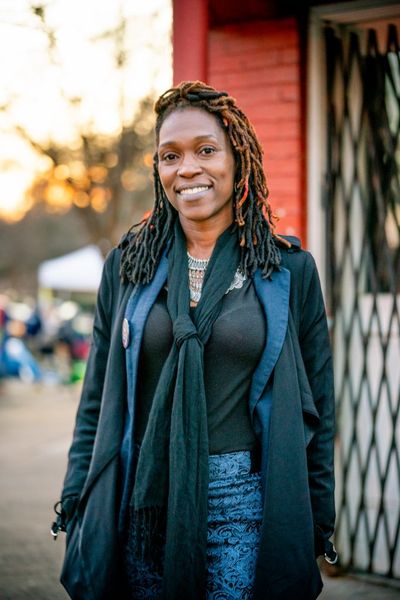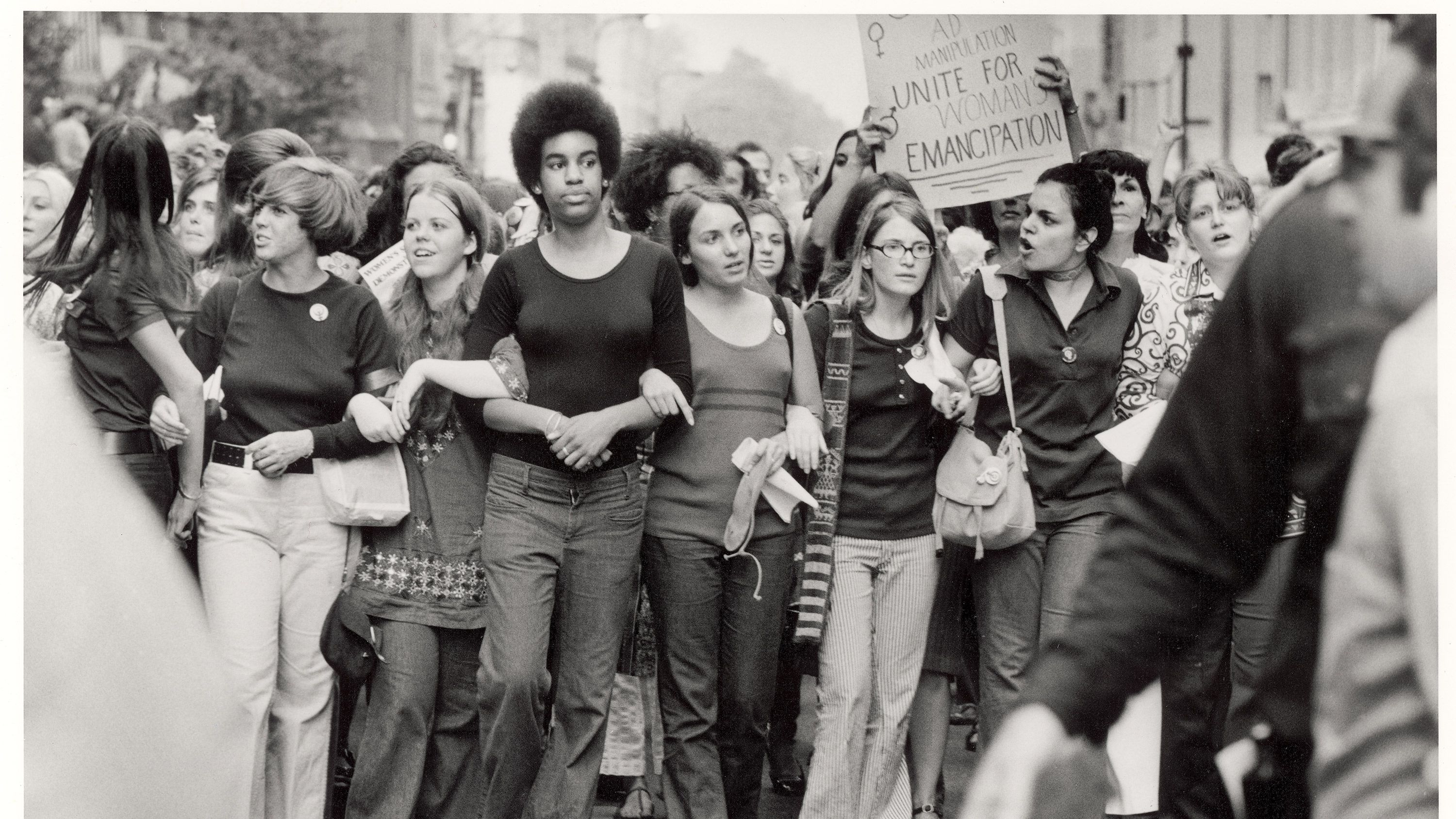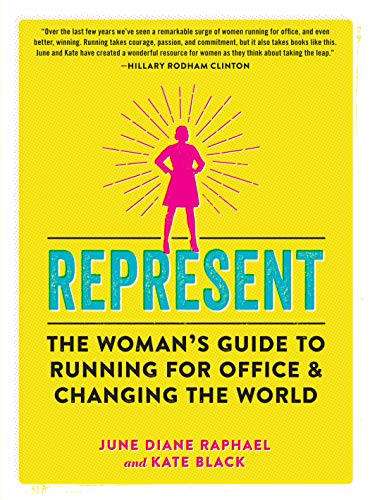How to Get Involved in Local Politics
Even if you don't want to run for office, there are still key ways to make a difference in your community.

When Mokah Jasmine Johnson learned that one of the bars in her community of Athens, Georgia, named a drink after a racist slur, she was mortified to discover the then-owner wasn't being held accountable for his actions. In a city filled with high poverty rates and struggling businesses, people's immediate concerns were focused elsewhere and they weren't vocal about their dissent. Johnson questioned whether she wanted to live in a city that allowed this to happen without any consequences, which prompted her to make a tough decision: Move, or try to make a difference? She went with the latter.
Johnson founded the Athens Anti-Discrimination Movement (AADM), a grassroots civil rights organization that aims to combat racism, in 2016, and quickly became a prominent activist in her community. That same year, she and her husband used their skills as entrepreneurs to organize a march in observance of Martin Luther King, Jr. Day, which rallied hundreds of people together to protest discriminatory behaviors. Today, she's running to represent District 117 in the Georgia House of Representatives.

Mokah Jasmine Johnson on MLK Day in 2019. She's running to fill a Republican-led seat in the Georgia House of Representatives.
"If you are truly fighting for change [at a local level], you understand that it's going to go into a political realm because you have to go to your mayor and commission. You have to speak to your police department. You have to start understanding policy, who's in charge, who's making decisions," explains Johnson, who's platform includes criminal justice reform, fair elections, and reproductive rights, amongst other issues. "I've never been into politics or was interested in running for any type of political position, but because of the work that I've been able to do as an activist and the things that I'm seeing going on in Georgia, that's what motivated me to run."
Though many of us, like Johnson, are inspired to spark change at the local level—arguably one of the most important ways to begin dismantling systemic racism in communities across the country—figuring out where to begin can feel daunting. That's why Marie Claire enlisted the help of Johnson, as well as the political organizations She Should Run and Higher Heights for America, to outline a step-by-step guide for getting involved in local politics. That doesn't necessarily mean running for office—it can be as simple as volunteering for a campaign you're passionate about.
Choose your path to get started, below.
- I'm Thinking About Running for Office
- I Want to Get Involved, But I'm Not Interested in Running for Office
I'm Thinking About Running for Office
Step 1: Consider Reaching Out to Political Organizations for Training and Resources
Organizations including Higher Heights, She Should Run, EMILY's List, Vote Run Lead, The Victory Institute, Emerge America, and Swing Left are working to elect new leaders at the local, state, and federal level. Each organization provides training and resources for candidates uniquely tailored to the level of office they're running for.
"Many of our trainings are free and they're presented by Black women experts and trainers," explains Glynda Carr, president, CEO, and founder of Higher Heights for America. "So it's not only an opportunity for Black women to be in community with other Black women from across the country online, but to also receive training and advice and counsel. Higher Heights is creating a community that centers on Black women and our experiences."
Get exclusive access to fashion and beauty trends, hot-off-the-press celebrity news, and more.
Erin Loos Cutraro, founder and CEO of She Should Run, agrees that tapping into training tools is the right first step. "There are so many resources out there, and even great books that break down how to run a successful race," she says. "If that fire in the belly is there, the steps that you need to take in order to run a successful race can absolutely happen when you plug in." She suggests starting with Represent: A Woman’s Guide to Running for Office and Changing the World. The book breaks down the fundamentals of launching a campaign, and has received praise from the likes of Hillary Clinton and Congresswoman Pramila Jayapal (D-WA).
Step 2: Connect With a Local Official You Trust
Getting advice from someone currently in an elected role (either the one you're eyeing, or a similar type of role) might help you decide your path forward and figure out what position is the best fit for you. Loos Cutraro advises finding a local official you trust to ask questions about the interworking of running for office.
Step 3: Outline Your Key Issues
Once you decide what position you're running for, sketch out the platform you want to implement—the issues that inspired you to run for office in the first place. It's helpful to have this crafted in the early stages, so you'll have copy ready to include on your website and social media accounts after filing for candidacy.
Step 4: Build Your Support System
Before filing for candidacy, assemble a group of people you know will be in your corner—not just the people who will work for you on your campaign team—for the days that may feel physically and emotionally draining. If you want strangers to believe in your vision, those closest to you will need to believe in your vision first.
Step 5: Assemble a Campaign Team
Some people would argue that candidates don't need to assemble a campaign team until after they file for candidacy. Actually, it's important to have a treasurer (who will manage all campaign finances in a campaign-focused bank account) and committee members lined up in order to submit their contact information while filing for candidacy. Mapping the team out beforehand makes the process a bit easier. Remember, it's about "assembling a group of individuals who care about the same things that you care about and putting in the time," says Loos Cutraro.
Local campaign teams often consists of a campaign manager, a treasurer, a volunteer coordinator, and field organizers. Bonus points if you have a communications manager!
Step 6: File for Candidacy
There's not a uniform set of directions for filing for candidacy. In fact, Johnson says she had to ask other candidates how the process worked, who were also unsure at the time. Typically, if you're running for a local position, turn in an application with the local Board of Elections.
RELATED STORY

Keep in mind there's a fee for filing, which varies depending on the county, state, and position. As Johnson notes, "This political market is not built for everyday working class people. It's built for people that already have money or have a wealthy following. So it makes it difficult for somebody that's passionate like myself to jump in a race because you have a fee you have to pay to enter." This is where rallying early support from friends and family, who may be able to help chip in for the filing fee, is useful.
Step 7: Build a Campaign Plan
Know where your opponent stands and who you want to reach. Set goals. And remember: Things change. It's okay if things don't go according to plan. For example, during the COVID-19 pandemic, Johnson hosted a digital town hall—something she never anticipated doing when she first ran for office. For resources to build a campaign plan, click here and here.
Step 8: Get Online
If you're looking to run for office in the near future, it's crucial to become familiar with social media platforms, and use them to your advantage. Due to the COVID-19 pandemic, candidates are unable to host big fundraisers or canvas in the same ways they might have before. "There's a whole new interesting challenge in a time of social distancing, and how individuals are canvasing," says Loos Cutraro. Part of your campaign plan should include utilizing social media and digital efforts, like newsletters, to get in touch with your community.
Step 9: Raise Money
Raising money is one of the most difficult tasks of campaigning, especially amidst a recession. Start with friends and family, then reach out to members of the community. However, before you do, setting up a finance plan is key. For tips on how to create a finance plan, click here.
Tip: Set up secure donations through ActBlue, rather than PayPal or Stripe, for campaign credibility and transparency.
"You have to figure out how to raise as much money as you can," says Johnson. "I'm fighting for the people and I'm encouraging people to get involved, but at the same time, the majority of the people that I'm fighting for might not be as wealthy as some of the people that support my opponent."
Step 10: Engage With the Community...
"If you're running for office you have to understand your community," says Loos Cutraro. "That's part of being a thoughtful candidate." Aside from making phone calls (20 to 40 hours per week is recommended) and knocking on doors, it's important to attend events in the community and get to know as many people as possible. A large social media following can only do so much (think about the elderly community voting for you who may not be online!). Ultimately, it all comes down to name recognition.
Step 11: ...And Encourage Them to Vote
As Loos Cutraro points out, it's important to activate individuals on your behalf. As voters on the federal level, we have lots of resources and information available about the candidates running. On the local level, there's often less information available about the candidates, or it's more difficult to find. Word-of-mouth can be a great way to reach voters who may not know that much about their local election; encourage those on your team to spread the word to their own family members and friends. Voter turnout for local elections can be notoriously low, so getting everyone to the polls or to commit to mail-in voting is crucial.
Step 12: Allow Time for Self Care
Above all, it's important to preserve your mental health while campaigning. You can't be everything to everyone at once. Running for office requires you to make yourself accessible to constituents in order to listen to them and help meet their needs, but you can only do that if you're the best version of yourself. Rest up, then get back to work!
I Want to Get Involved, But I'm Not Interested in Running for Office
Volunteer for a Campaign
Local positions like judicial seats and the school board are crucial to shaping our communities. Find a candidate you're passionate about, then reach out to their campaign manager or volunteer coordinator if you're interested in helping get them elected. If you don't want to volunteer for a specific campaign, you can also get involved with organizations like Stacey Abrams' Fair Fight that advocates for free and fair elections across the country.
Volunteering is also a great way to amplify the voices of minority candidates. "Volunteer on a race supporting a candidate that doesn't look like you, or that doesn't come from the same background as you, or that isn't potentially represented at all in your local community," says Loos Cutraro. "There are real, systemic barriers that are in place that are keeping Black women and low income women out of these positions of power. It's doing a disservice to us all."
Organize a Program
Let's say you want to introduce a hot lunch program in your community's local schools, but there currently isn't a group working to make that happen—look to other communities who have successfully launched a similar program and follow suit. If you don't have time to start it yourself, attend your local town hall meeting to suggest the idea, or learn what division of your local government might have the capacity to take on the project.
Donate to a Candidate
If you have the means, consider donating money to candidates you support. Any amount helps.
Join a Board or Commission
Outside of elected positions, you can also get involved in local politics by joining a board or commission, i.e. a group of people in charge of a particular area. These are usually appointed roles that advise on any number of issues, from public safety to housing to education. While there is no one formula on how to run for office, starting out on a board or commission first may give you a dose of experience and help you gauge what you're passionate about.
Work for a Political Organization
Help recruit, train, and support other women running for office. You can increase the chance they get a seat at the table by working year-round at a political organization, like the ones mentioned above.
CLICK HERE FOR MORE ON 6 ORGS HELPING WOMEN RUN
Support Candidates After They've Been Elected
"Democracy doesn't begin and end on election day. Citizens should continue to be an active partner with their elected leaders and ensure that our elected leaders continue to be in constant dialogue with their constituency," says Carr. A great way to do this is by attending a town hall and/or city council meeting to praise accomplishments or express concerns. Hold your local leaders accountable.
"If we're going to build a better community and a better nation that we all can believe in, it's about partnership," Carr adds. "And I believe some of the most effective elected leaders are ones that create an ongoing way for their constituencies to be engaged in their work as they govern."
After a local candidate has put in the work to win a seat, it's important to support the candidate so that she or he can make good on their campaign promises. "It's not enough to say, We think you should run," says Loos Cutraro. "We have to show up when they do run."
Vote!
The easiest way to show your support is to make sure you're registered to vote, and get others to do the same. Local elections historically have low voter turnout. Research who's on the ballot before election day to make an informed decision at the polls.
Become a Poll Worker
Voter suppression is rampant across the country—the recent Georgia presidential primary election is proof. To ensure all people can exercise their right to vote in free and fair elections, consider getting trained as a poll worker and make sure the voting process goes smoothly on election day.
RELATED STORY

Rachel Epstein is a writer, editor, and content strategist based in New York City. Most recently, she was the Managing Editor at Coveteur, where she oversaw the site’s day-to-day editorial operations. Previously, she was an editor at Marie Claire, where she wrote and edited culture, politics, and lifestyle stories ranging from op-eds to profiles to ambitious packages. She also launched and managed the site’s virtual book club, #ReadWithMC. Offline, she’s likely watching a Heat game or finding a new coffee shop.



